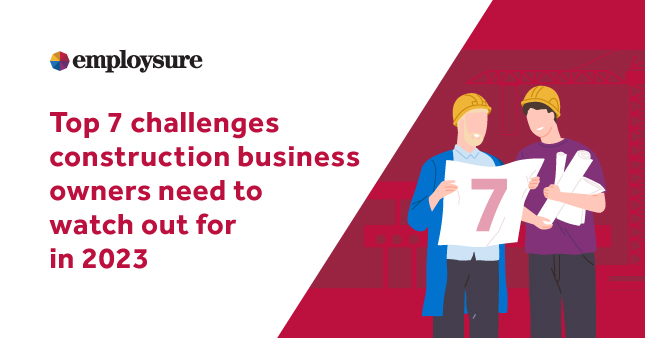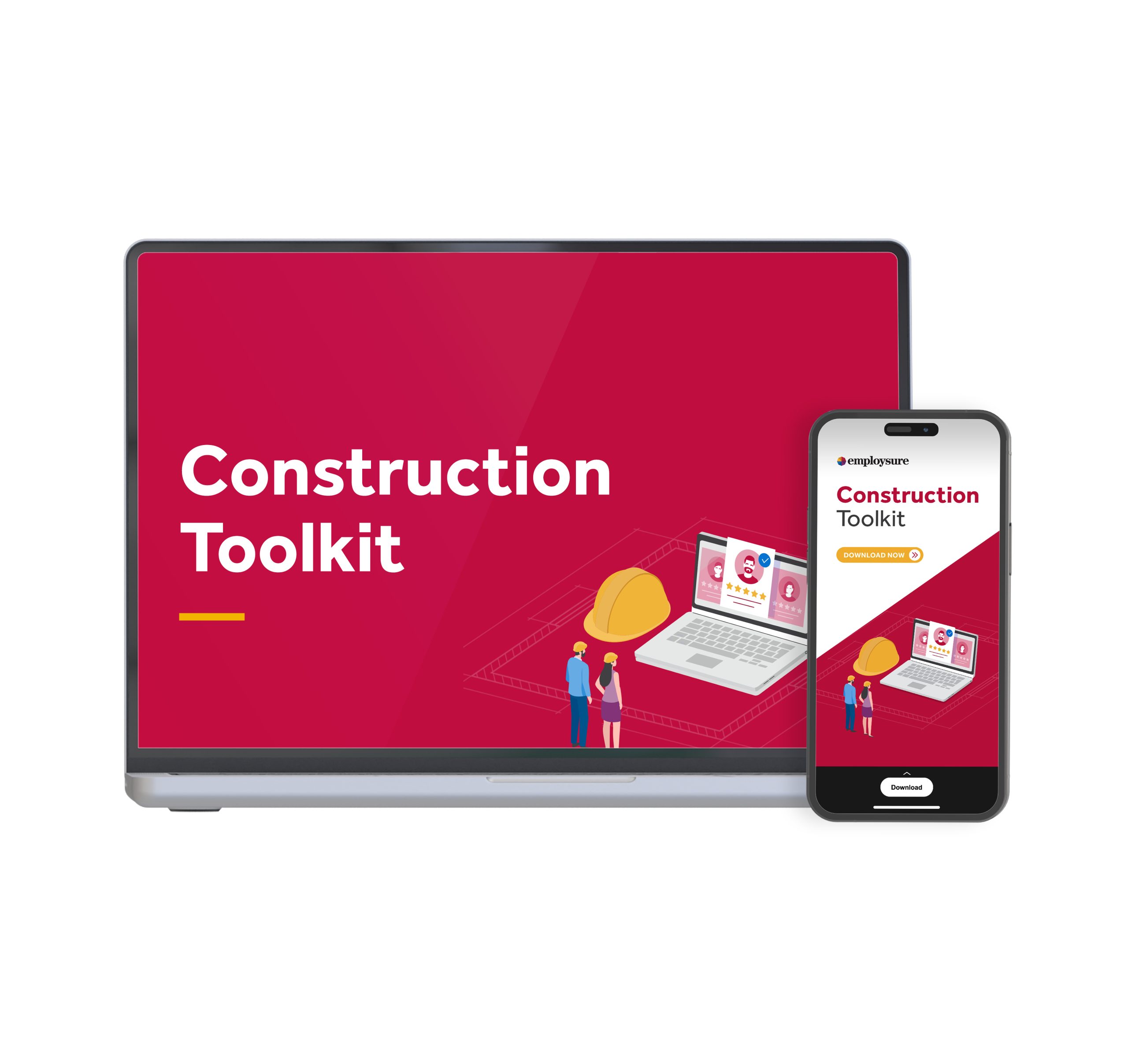
There are many challenges for construction business owners to watch out for where running a successful company is concerned. As well as keeping a site running smoothly and safely, they have to deliver projects on time and budget. Beyond normal day-to-day issues, there are also a few challenges that might take you by surprise. Here are this year’s top seven challenges for construction business owners, and some steps you can take to navigate them.
A shortage of skilled workers
The scarcity of skilled workers is a challenge construction business owners often face and 2023 will be no exception. Following a shortage of international workers created by the pandemic, there will be more than 100,000 unfilled construction roles in Australia in 2023.
Currently, there are only enough adequately qualified construction workers seeking employment to fill 50% of the vacant positions. This labour shortage is expected to slow the industry’s growth by 5.5% year-on-year, despite rising demand for property development.
Increasing health and safety issues
The labour shortages outlined above can also impact workplace health and safety. Companies trying to close the labour gap by quickly training new staff chance the risks of an inexperienced workforce. Mistakes and poor judgment can increase on-the-job accidents and injuries. In addition, understaffed companies are likely to attempt to do more with less, putting extra pressure on staff who may rush tasks, take shortcuts, or commit to excessive hours.
Now more than ever, construction companies should prioritise health and safety compliance to protect their workers. This reduces liabilities and minimises the severity and frequency of claims. However, research by the Safe Work Australia agency shows that nearly a quarter of construction workers have received no health and safety training for a full year.
Want to find out more about your work health and safety obligations? Download our free work health and safety e-guide.
High levels of employee turnover
The latest data released by the Australian Bureau of Statistics indicates that construction has the fourth highest turnover of 14 sectors measured. Over 110,000 employees have left positions in the past 12 months.
This high turnover rate may be the result of the less appealing aspects of work in the sector. These include long hours, the physically demanding nature of work and increased risk of injury. Additionally, there is a lack of job security in a sector dominated by contracted, subcontracted and casual staff.
Hiring managers can overcome these negatives by emphasising the freedoms of earning while you learn, enjoying flexible hours and working in the outdoors.

Download our Handy Toolkit
This guide helps employers in Building and Construction understand industry best practices and how to put them into action.
Rising interest rates
The recent interest rate rises intended to curb inflation have dramatically affected the demand for new homes. The latest figures from Housing Industry Association (HIA) show sales of new homes are dropping at 4.6% per month and 42% lower than this time last year. HIA chief economist Tim Reardon anticipates “this slowing in sales will flow through to reduced building activity in the second half of 2023”.
The same report finds one in five customers are now having to cancel the build of new homes, with increasing interest rates leading to reduced borrowing power. Smaller construction companies that rely on individual builds are more likely to feel the financial effects of this downturn.
Increasing pay rates
Labour shortages have fuelled the strongest growth in construction pay since 2007. Pay across the industry rose by an average of 5% throughout 2022, outpacing the average 3.6% wage rise in the private sector. With companies keen to ward off competition, construction pay rises are expected to increase by a further 5% this year. In the context of a competitive labour market, it is vital to ensure your employees are properly compensated.
The minimum wage rates for your employees can be difficult to calculate. They vary depending on when your staff work, their specific roles and worker level. Also, keep in mind Australian minimum wage increases come into effect on the 1st of July each year.
If you’re unsure about wages and pay rates, read our Guide to Wage and Pay.
Environmental issues
Although many building projects are labelled “green”, construction has come under intense scrutiny in recent years for environmental issues. With the world firmly focused on sustainability, construction business owners must reduce and mitigate the environmental risks of their sites.
Every stage of a construction project has a measurable impact on the environment. This includes the use of raw materials and water, burning fossil fuels and the disposal of waste into landfills.
Project managers on construction sites need to ensure material resources are used efficiently. Simultaneously, an effective Waste Management Plan needs to be put in place before a project begins.
Construction supply chain issues
Construction supply chain issues remain one of the biggest challenges for construction business owners.
Common construction materials that were traditionally readily available before the outbreak of the pandemic are now difficult to find. If found, they often come at very high prices with long lead-times. As a result, contractors find themselves forced to consider material alternatives in order to meet project budgets and schedules.
Are you wondering how to reduce the impact of construction supply chain issues? You can communicate project timelines with suppliers, order locally, promptly pay suppliers, and ordering long-lead materials ahead of schedule.
Does your construction company have pay or workplace health and safety issues? Australian businesses can call our free 24/7 advice line on 1300 651 415.
Employsure handles thousands of workplace problems like yours, with construction companies representing 19% of our client base.
